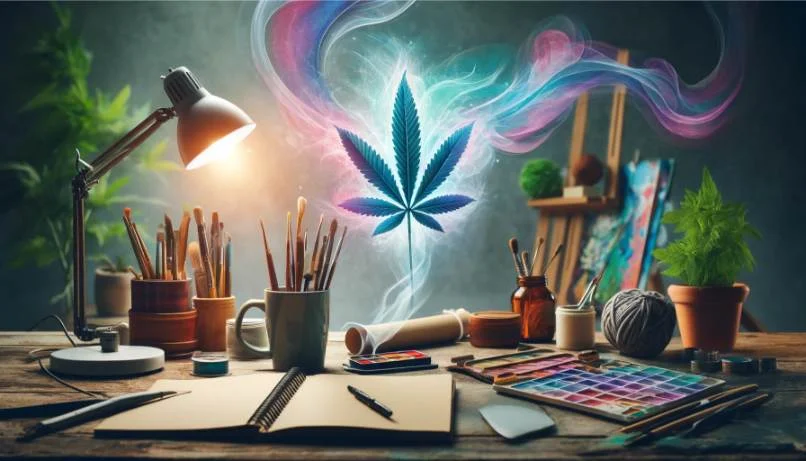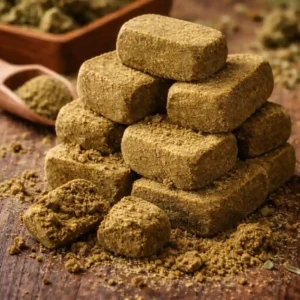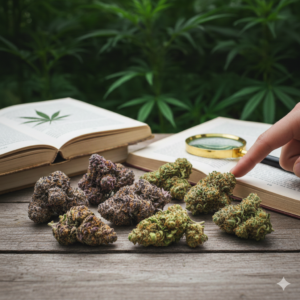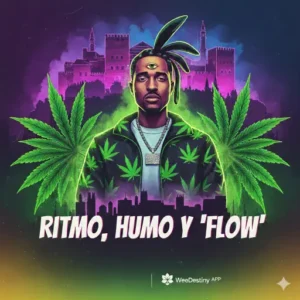Cannabis has been a controversial and acclaimed substance for centuries, with uses ranging from medicinal to recreational. In recent years, there has been growing interest in its potential to enhance creativity. But is cannabis really effective in boosting creative inspiration? In this article, we will explore the relationship between cannabis and creativity, scientific studies on the subject, and how this plant can influence the creative process.
What Is Creativity?
Defining Creativity
Creativity is the ability to generate new and original ideas and solve problems in innovative ways. It is a complex process that involves combining different thoughts and experiences to produce something unique. Creativity can manifest in various forms, such as art, writing, music, invention, and more.
Factors Influencing Creativity
Several factors can influence creativity, including personality traits, life experiences, environment, and, according to some, psychoactive substances like cannabis. Dopamine, a neurotransmitter in the brain, plays a crucial role in motivation and pleasure and is linked to creative processes. Cannabis, by interacting with the body’s endocannabinoid system, can affect the release of dopamine, suggesting a possible connection to creativity.
How Does Cannabis Affect the Brain?
The Endocannabinoid System
The endocannabinoid system is a network of receptors in the brain and body that interacts with cannabinoids, chemical compounds found in cannabis. The two most well-known cannabinoids are THC (tetrahydrocannabinol) and CBD (cannabidiol). THC is responsible for the psychoactive effects of cannabis, while CBD does not produce a “high” but has medicinal properties.
Effects of THC and CBD
THC binds to CB1 receptors in the brain, which can alter perception, mood, and cognition. This can lead to intensified sensory experiences and freer, more abstract thinking, which some associate with creativity. CBD, on the other hand, is not psychoactive but can influence overall well-being, potentially indirectly supporting the creative process by reducing stress and anxiety.
Scientific Studies on Cannabis and Creativity
Evidence in Favor
Some studies suggest that cannabis can stimulate creativity. For example, a study published in Consciousness and Cognition found that moderate cannabis users might experience an increase in verbal fluency, a measure of creativity. Another study in Psychopharmacology showed that THC might increase the tendency to think divergently, a type of thinking that generates multiple possible solutions to a problem.
Evidence Against
However, not all studies support the idea that cannabis enhances creativity. Some researchers argue that the effects of cannabis on creativity can be subjective and depend on dosage and the individual. For instance, high doses of THC can lead to decreased concentration and disorganized thinking, which could hinder the creative process.
Personal Experiences of Artists and Creatives
Positive Testimonials
Numerous artists and creatives have openly discussed how cannabis has positively influenced their work. Musicians like Bob Dylan and Snoop Dogg, and writers like Stephen King, have mentioned using cannabis as a source of inspiration. These testimonials suggest that, at least for some people, cannabis can unlock new forms of thought and expression.
Negative Testimonials
On the other hand, there are creatives who have found that cannabis can be a distraction or even a barrier to productivity. Lack of focus and procrastination are common side effects that can counteract any potential benefits for creativity.
Factors to Consider
Dosage and Tolerance
The amount of cannabis consumed plays a crucial role in its effects. Low doses of THC can induce a state of relaxation and open the mind to new ideas, while high doses can cause paranoia and confusion. Additionally, tolerance to cannabis varies among individuals, meaning an effective dose for one person might be excessive for another.
Environment and Context
The environment in which cannabis is consumed also influences its impact on creativity. A calm and safe environment can foster a more positive and productive experience, while a stressful setting can amplify the negative effects of THC.
Mental State
The user’s mental state before consuming cannabis is another important factor. People who are already in a creative and relaxed state may find that cannabis enhances their ideas, while those who are stressed or anxious may experience adverse effects.
Conclusion: Cannabis and Creativity?
The relationship between cannabis and creativity is complex and multifaceted. While there is evidence that cannabis can stimulate certain aspects of creative thinking, its effects vary widely among individuals and contexts. For some, it can be a useful tool to unlock new ideas and perspectives, while for others, it can be an obstacle to concentration and productivity.
Final Recommendations
For those interested in experimenting with cannabis as a creative tool, it is essential to start with low doses and be in a safe and comfortable environment. It is also important to be aware of one’s limits and be prepared to adjust consumption as necessary. As with any substance, moderation and self-awareness are key to maximizing potential benefits and minimizing risks.
Ultimately, creativity is an inherently human quality that can be influenced by a multitude of factors. Cannabis is just one of many tools that can be used to explore and expand the creative mind.




